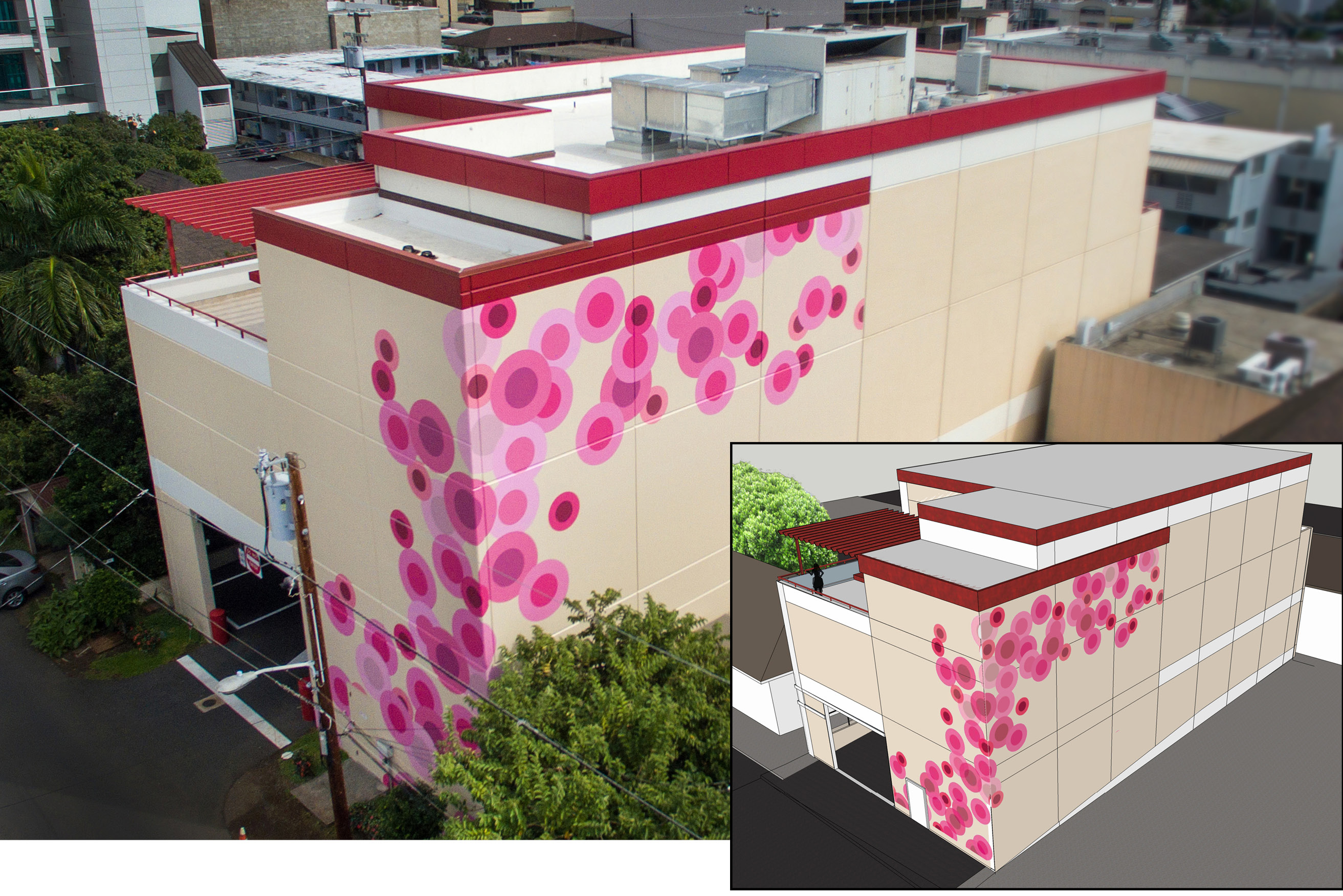Hawaii Blood Bank: A Lifeline For The Aloha State
When it comes to blood banks, Hawaii stands out as a beacon of hope and community spirit. In this tropical paradise, where the sun always shines and the waves crash gently against the shore, there's a hidden hero working tirelessly behind the scenes - the blood bank system. Without it, countless lives would be at risk, and the healthcare infrastructure of the islands would crumble. So, let's dive into the world of blood banks in Hawaii and uncover what makes them so special.
Picture this: you're enjoying a perfect day in Honolulu, soaking up the sun, and sipping on a fresh coconut drink. Suddenly, an accident happens, and someone needs immediate medical attention. That's where the blood bank steps in, providing the essential resources to save lives. It's not just about collecting blood; it's about creating a safety net for the entire community.
As we explore the ins and outs of blood banks in Hawaii, you'll discover how they operate, the challenges they face, and why they are crucial to the healthcare system. So, grab your sunscreen and let's get started on this journey through the veins of Aloha!
- Camilla Araujo Leaks Unraveling The Truth Behind The Viral Storm
- Sarah Matrisciano The Rising Star Redefining Music And Creativity
Understanding the Role of Blood Banks in Hawaii
What Exactly is a Blood Bank?
A blood bank, in its simplest form, is a place where blood is collected, stored, and distributed to those in need. In Hawaii, these facilities play a vital role in ensuring that hospitals and clinics have access to life-saving blood products. It's not just about collecting blood; it's about processing, testing, and distributing it safely and efficiently.
Think of a blood bank as the heart of the healthcare system, pumping life into those who need it most. Without these facilities, surgeries, cancer treatments, and emergency care would be nearly impossible. And in a place like Hawaii, where resources can be limited, the importance of blood banks cannot be overstated.
Why Are Blood Banks Essential in Hawaii?
Hawaii is a remote island chain, thousands of miles away from the mainland. This geographical isolation means that importing blood products from other states can be challenging and expensive. That's why having a robust blood bank system is crucial for the islands.
- Lollipop Lawsuit The Sweet Battle Over Candy Rights
- Abby And Brittany Hensel Sad News A Heartfelt Journey Through Lifersquos Challenges
- Provides immediate access to blood products for emergencies
- Supports surgeries and medical procedures
- Ensures a steady supply of blood for chronic conditions
- Reduces reliance on external resources
By maintaining a local blood bank network, Hawaii can ensure that its residents receive the care they need without delay. It's all about self-sufficiency and community support.
The History of Blood Banks in Hawaii
Believe it or not, blood banks have been around for a long time. In Hawaii, the first blood bank was established in the mid-20th century, and since then, it has evolved into a sophisticated system. Back in the day, collecting and storing blood was a lot more challenging than it is today. But thanks to advancements in technology and medical science, blood banks in Hawaii have become a vital part of the healthcare landscape.
Over the years, the blood bank system in Hawaii has grown to include multiple locations across the islands, making it easier for donors to contribute and for patients to receive the care they need. It's a testament to the resilience and innovation of the Aloha State.
How Blood Banks Operate in Hawaii
Collection Process
So, how does a blood bank actually work? Well, it all starts with the donors. In Hawaii, blood drives are a common sight, with mobile units traveling from one location to another. These drives are designed to make it easy for people to give back to their community by donating blood.
Once the blood is collected, it goes through a rigorous testing process to ensure its safety. This includes checking for infectious diseases and other contaminants. Only after it passes these tests is the blood deemed suitable for use.
Storage and Distribution
After collection and testing, the blood is stored in specialized facilities until it's needed. These storage units are carefully controlled to maintain the right temperature and conditions for preserving the blood. When a hospital or clinic requests blood, it's quickly and efficiently delivered to the location.
It's a well-oiled machine, with every step meticulously planned and executed to ensure that patients receive the highest quality care.
Challenges Faced by Blood Banks in Hawaii
Running a blood bank in Hawaii isn't without its challenges. The islands' isolation means that importing supplies and equipment can be difficult and costly. Additionally, maintaining a steady supply of blood donors is always a concern, especially during tourist-heavy seasons when locals may be less available to donate.
- Limited resources and infrastructure
- Seasonal fluctuations in donor availability
- High costs of importing supplies
- Ensuring blood safety and quality
Despite these challenges, the blood banks in Hawaii continue to thrive, thanks to the dedication and hard work of the staff and volunteers who keep them running.
Importance of Donating Blood in Hawaii
Donating blood is one of the most selfless acts a person can do. In Hawaii, where the community spirit runs deep, giving blood is seen as a way to contribute to the greater good. Every donation has the potential to save up to three lives, making it an incredibly impactful gesture.
But why should you donate blood in Hawaii? For starters, it's a way to support your local community and ensure that healthcare facilities have the resources they need. Plus, it's a relatively quick and painless process, with most donations taking less than an hour.
Statistics and Data on Blood Banks in Hawaii
Let's talk numbers. According to the American Red Cross, which operates several blood banks in Hawaii, approximately 38,000 blood donations are needed each year to meet the demands of the state's healthcare system. That's a lot of blood, and it highlights just how important these facilities are.
Furthermore, studies have shown that blood donations in Hawaii have been steadily increasing over the past decade, thanks in part to awareness campaigns and community outreach efforts. This trend is encouraging and demonstrates the growing recognition of the importance of blood banks in the state.
Community Involvement in Blood Donation
Volunteer Programs
One of the keys to the success of blood banks in Hawaii is the strong community involvement. Volunteer programs are a vital part of this effort, with locals stepping up to help in various ways. Whether it's organizing blood drives, assisting with donor registration, or simply spreading the word, volunteers play a crucial role in ensuring the smooth operation of these facilities.
These programs not only help with the logistical aspects of running a blood bank but also foster a sense of community and shared responsibility. It's a win-win for everyone involved.
Corporate Partnerships
Corporate partnerships have also been instrumental in supporting blood banks in Hawaii. Many businesses in the state actively encourage their employees to donate blood and even organize company-wide blood drives. These initiatives help to boost donor numbers and raise awareness about the importance of blood donations.
By working together, the community and corporate sectors can ensure that blood banks in Hawaii continue to thrive and provide the essential services they offer.
Future of Blood Banks in Hawaii
Looking ahead, the future of blood banks in Hawaii is bright. Advances in technology and medical science are paving the way for more efficient and effective blood collection and distribution systems. Additionally, ongoing efforts to increase donor awareness and participation will help to ensure a steady supply of blood for years to come.
With the support of the community, volunteers, and corporate partners, blood banks in Hawaii will continue to be a lifeline for the Aloha State. It's a testament to the strength and resilience of the Hawaiian people and their commitment to caring for one another.
Conclusion
In conclusion, blood banks in Hawaii play a crucial role in the healthcare system, providing life-saving resources to those in need. From their history and operation to the challenges they face and the importance of community involvement, these facilities are a vital part of the islands' infrastructure.
So, what can you do to help? Consider donating blood, volunteering your time, or supporting corporate partnerships that contribute to the success of blood banks in Hawaii. Every little bit helps, and together, we can ensure that this lifeline continues to thrive.
Don't forget to share this article with your friends and family and encourage them to get involved. Together, we can make a difference and help save lives in the Aloha State.
Table of Contents
- Understanding the Role of Blood Banks in Hawaii
- The History of Blood Banks in Hawaii
- How Blood Banks Operate in Hawaii
- Challenges Faced by Blood Banks in Hawaii
- Importance of Donating Blood in Hawaii
- Statistics and Data on Blood Banks in Hawaii
- Community Involvement in Blood Donation
- Future of Blood Banks in Hawaii
- Conclusion
- Chloe And Matt Leak The Untold Story Behind The Viral Sensation
- Free Undress The Ultimate Guide To Understanding Its Meaning Relevance And Implications

MGA Architecture Blood Bank Hawaii Young Street

Blood Bank of Hawaii Ward Village

Blood Bank of Hawaii LinkedIn